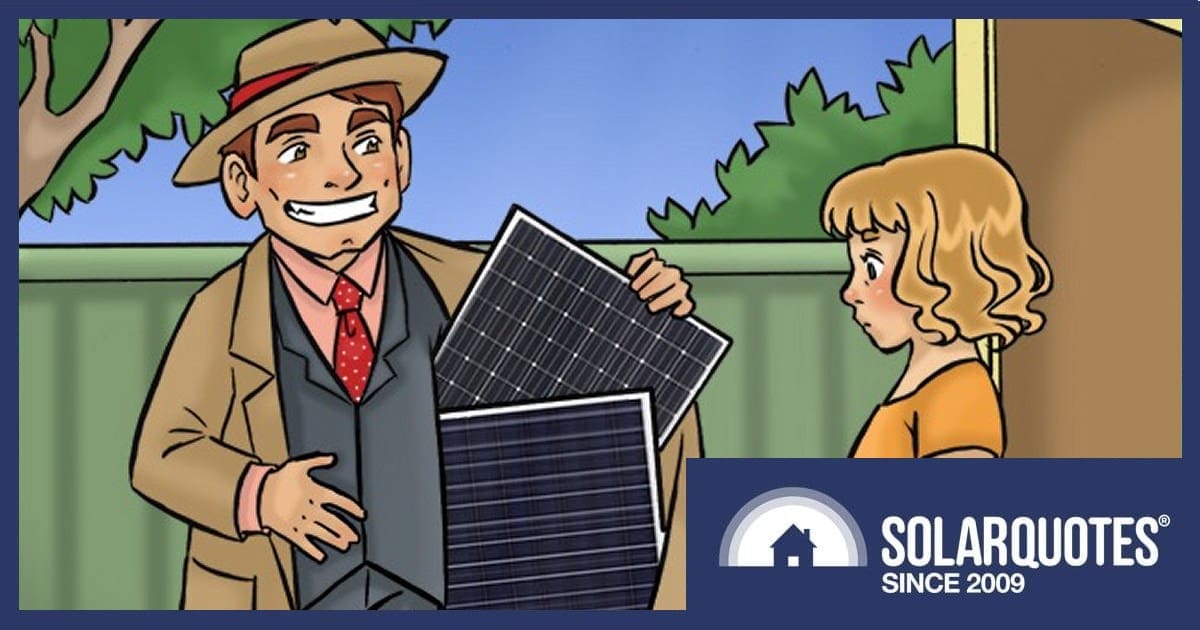
Consumer Action Law Centre is calling on the Australian Competition and Consumer Commission to implement a nationwide ban on the scourge of unsolicited selling, including door-to-door and telemarketing sales of solar power systems.
The issue has been raised with the ACCC through a “designated complaint”. Such complaints can only be submitted by consumer and small business groups designated by the relevant Minister to do so, and must relate to a significant or systemic market issue negatively affecting Australian consumers or small businesses.
Consumer Action Law Centre (CALC), CHOICE and the Council of Small Business Organisations Australia were selected by the Federal Government as the first designated complainants in July last year.
“Today, we are hearing about the unsolicited door-to-door selling and telemarketing of many items, most notably, solar panels -in the past it was encyclopedias and educational software- it’s an ongoing systemic issue that impacts thousands of Australians and causes real harm especially to those living in vulnerable circumstances,” said Consumer Action Law Centre CEO Stephanie Tonkin.
Some of the conduct identified by the Centre that may have breached unsolicited selling provisions includes:
- Not providing required information.
- Refusing to stop selling when requested by the consumer.
- Not informing consumers of cooling off rights.
- Failing to supply signed documents.
There’s also a laundry-list of issues relating to consumer agreements, post-contractual conduct, and the abuse of government rebate programs and other incentives as sales tools.
Commenting on solar and related products specifically, the Centre says the widespread poor practices are:
- Damaging consumer trust in the market.
- Detracting from the advantages of rooftop solar power for households and the broader electricity grid.
- Undermining efforts to transition Australia to clean energy sources.
On a related note, while door-to-door and telemarketing sales of solar systems are banned from Victoria’s Solar Homes Program, it seems the practice is still widespread there. CALC’s complaint says this indicates nothing short of a legislative ban on unsolicited selling under the ACL (Australian Consumer Law) will stop it; backed with enforcement action where appropriate.
BNPL Finance Risks Highlighted
Solar gets a special focus in CALC’s complaint – the word is mentioned 53 times. But another term mentioned on dozens of occasions and often in connection to solar/battery sales is BNPL – Buy Now, Pay Later finance.
The complaint states BNPL finance makes larger purchases, such as a solar power system or home battery, possible for many more households – acting as an enabler for poor unsolicited selling conduct. But specific BNPL-related issues include non-disclosure of the full cost of the solar panels and BNPL finance, and not informing the customer that they are entering into a BNPL contract.
Lead Generation Reforms Needed Too
CALC also wants to see regulatory reform of lead generation practices.
“A person types in their contact details on a website that looks legitimate and offers something enticing, then they quickly find themselves spammed with cold calls, or subject to an in-home sales pitch,” said Ms. Tonkin. “We think companies are using lead generation to get around the (very limited) protections that do exist, whereby clicking on the website those consumer protections may not apply.”
SolarQuotes makes its money through lead generation – Australians submit for quotes and we match their requirements with selected pre-vetted installers who then compete for their business. Those businesses pay SQ for the lead, whether the person buys a system or not.
But SolarQuotes does not engage in the poor behaviour identified the CALC complaint, nor would it be tolerated from installers in the SQ network. We pass a customer’s details on to a maximum of 3 solar companies we trust (and not call centres), and with the customer’s permission. You can view our golden rules for handling contact details – part of the reason the company is still going strong after 16 years.
CALC’s “super complaint” can be viewed in full here.

 RSS - Posts
RSS - Posts



Speak Your Mind